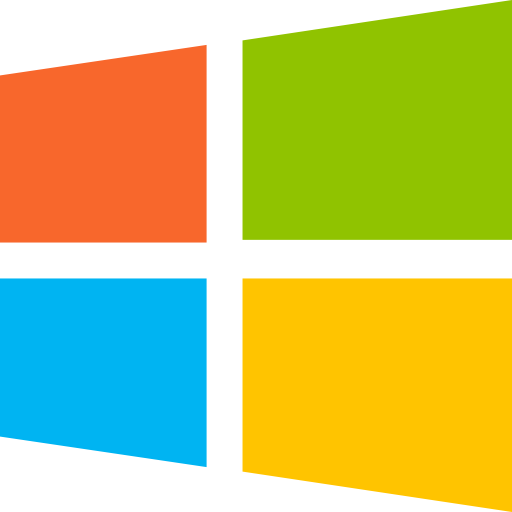In an increasingly digital world, the importance of cybersecurity cannot be overstated. As organizations and individuals continue to rely on technology for various aspects of their lives, the threats posed by cybercrime are growing more sophisticated and damaging. Cybercrime is projected to inflict a staggering $8 trillion in global costs in 2023, with estimates rising to $10.5 trillion by 2025. This alarming trend has placed cybersecurity at the forefront of business priorities, making it essential for organizations to adopt robust security measures to protect their data and assets.
The Importance of Cybersecurity
Protecting Sensitive Data
One of the primary benefits of cybersecurity is its role in safeguarding sensitive data. Organizations collect and store vast amounts of information, including personal, financial, and proprietary data. A data breach can lead to significant financial losses, reputational damage, and legal consequences. For instance, the infamous Equifax data breach in 2017 exposed the personal information of 147 million individuals, resulting in a settlement of over $700 million.
Enhancing Customer Trust
In today’s market, customers are increasingly concerned about their privacy and the security of their data. Implementing strong cybersecurity measures helps build trust with customers. When customers know that an organization takes data protection seriously, they are more likely to engage with that business. Companies like Palo Alto Networks, known for their advanced cybersecurity solutions, have gained a reputation for prioritizing customer security, which in turn enhances customer loyalty.
Compliance with Regulations

With the rise of data protection regulations such as GDPR and CCPA, organizations are legally obligated to protect consumer data. Non-compliance can result in hefty fines and legal repercussions. Cybersecurity not only helps businesses adhere to these regulations but also promotes a culture of accountability and transparency. For example, companies like Rapid7 offer tools that assist organizations in meeting compliance requirements while ensuring robust security measures.
Reducing Financial Losses
Investing in cybersecurity can significantly reduce potential financial losses associated with cyberattacks. The costs of recovering from a breach, including forensic investigations, legal fees, and loss of revenue due to downtime, can be astronomical. By implementing effective cybersecurity measures, businesses can mitigate these risks and avoid costly incidents. For instance, the average cost of a data breach in 2023 was estimated at $4.35 million, making preventive measures a cost-effective strategy for organizations.
Adapting to Emerging Threats
As technology evolves, so do the tactics used by cybercriminals. Cybersecurity plays a critical role in enabling organizations to adapt to emerging threats. Companies that specialize in cybersecurity, such as CrowdStrike, are continually developing advanced solutions to counter new types of attacks, such as ransomware and phishing schemes. Their proactive approach ensures that businesses can stay one step ahead of potential threats.
Key Players in the Cybersecurity Industry
As the demand for cybersecurity solutions grows, several companies have emerged as leaders in the field. Here are 15 top cybersecurity companies to know in 2024:
1. Palo Alto Networks
Founded in 2005 and headquartered in Santa Clara, California, Palo Alto Networks specializes in protecting all digital assets across various environments, including cloud, mobile devices, and networks. Their comprehensive suite of services includes threat detection, risk management, and zero-trust security. The company’s innovative Cortex platform utilizes artificial intelligence to provide continuous security monitoring and threat analysis, helping organizations effectively manage cyber risks.
2. CrowdStrike
Established in 2011 and based in Sunnyvale, California, CrowdStrike is a prominent player in endpoint security. Their Falcon platform uses cloud-based AI to detect and respond to threats in real-time. The company is renowned for its proactive approach to cybersecurity, allowing businesses to effectively defend against a wide range of cyber threats, including ransomware attacks. For instance, CrowdStrike’s threat intelligence has helped numerous organizations thwart sophisticated cyber espionage efforts.
3. McAfee
With a history dating back to 1987, McAfee is a veteran in the cybersecurity space. Headquartered in San Jose, California, McAfee offers a range of products focused on endpoint security, cloud security, and web protection. Their solutions help businesses protect their networks and data from various threats while ensuring compliance with industry regulations. McAfee’s Advanced Threat Defense (ATD) is designed to detect and analyze advanced malware.
4. Rapid7
Founded in 2000 and based in Boston, Massachusetts, Rapid7 provides comprehensive security solutions designed to improve visibility across IT and IoT environments. Their tools for vulnerability management, application security testing, and incident detection enable organizations to proactively address security gaps and respond to incidents efficiently. Rapid7’s Insight platform integrates analytics with automated responses to enhance threat detection capabilities.
5. KnowBe4
KnowBe4 specializes in security awareness training and phishing simulations. Established in 2010 and headquartered in Clearwater, Florida, their platform educates employees on cybersecurity best practices, helping organizations reduce the risk of human error—a common vulnerability in cybersecurity. By enhancing employee awareness, businesses can bolster their defenses against social engineering attacks. For example, KnowBe4’s training has led to a significant reduction in phishing incident rates for its clients.
6. Microsoft

Following its acquisition of RiskIQ, Microsoft has revamped its cybersecurity services. The Microsoft Defender platform now features enhanced threat intelligence capabilities, providing organizations with a more holistic view of the threat landscape. By integrating advanced threat detection with existing Microsoft products, businesses can better understand and mitigate risks. Microsoft’s Cloud App Security has proven effective in protecting against cloud application vulnerabilities.
7. Check Point Software Technologies
Founded in 1993 and headquartered in Tel Aviv, Israel, Check Point is a global leader in cybersecurity solutions. Their offerings include network security, cloud security, and endpoint protection. Check Point’s innovative technologies, such as the Live Cyber Threat Map, help organizations stay informed about real-time threats, allowing for proactive measures against cyber incidents. Their SandBlast technology provides advanced threat prevention against malware.
8. Cloudflare
Established in 2009 in San Francisco, California, Cloudflare is known for its extensive network security solutions, including website security and application protection. By leveraging its interconnected network, Cloudflare blocks billions of online threats daily, serving businesses of all sizes across various sectors. Their Distributed Denial of Service (DDoS) protection is particularly valuable for organizations facing frequent attacks.
9. BAE Systems
BAE Systems, a multinational defense, security, and aerospace company, offers cybersecurity solutions that focus on risk management and compliance. Their expertise in threat intelligence and incident response makes them a valuable partner for organizations seeking to bolster their cybersecurity posture. BAE’s cyber defense capabilities are integral to protecting critical national infrastructure.
10. Trail of Bits
Founded in 2012 and based in New York City, Trail of Bits specializes in advanced cybersecurity solutions, including reverse engineering and malware protection. Their team of experts has provided security assessments for high-profile clients, including major tech companies and government agencies, demonstrating their credibility and expertise in the field. Their work on securing blockchain technologies showcases their innovative approach to cybersecurity.
11. Tufin
Founded in 2005 and headquartered in Boston, Tufin focuses on network security and cloud security. Their products support end-to-end protection across enterprises’ networks and cloud environments, enabling security policy automation. Tufin’s solutions help organizations efficiently prepare for audits and streamline application deployment while maintaining robust security postures.
12. Proofpoint
Established in 2002, Proofpoint specializes in cloud-based security solutions that protect against a wide variety of threats, including those delivered via email and social media. Their services include phishing detection, ransomware protection, and data loss prevention. Proofpoint’s advanced threat detection capabilities help organizations safeguard their sensitive information and maintain compliance with data protection regulations.
13. Red Canary
Founded in 2014, Red Canary offers cloud-based cybersecurity solutions designed for managing and responding to cybersecurity threats. Their platform alerts users to potential security risks and provides rapid response capabilities through endpoint telemetry and cloud environment runtime threat detection. Red Canary’s threat detection model has been instrumental in identifying and mitigating advanced persistent threats (APTs).
14. Axio
Based in New York, Axio is a SaaS-based software company that empowers businesses to evaluate cybersecurity risks by dollar amounts. Their platform supports various frameworks, enabling organizations to assess their cybersecurity investments effectively. By providing insights into potential impacts of cyber incidents, Axio helps security leaders plan effective strategies and budgets for cybersecurity initiatives.
15. Cymulate
Cymulate specializes in breach and attack simulation, helping businesses bolster their cybersecurity defenses through simulated tests and automated assessments. Founded in 2016, Cymulate enables organizations to identify weaknesses in their cloud environments and infrastructure. By simulating real-world attacks, businesses can make informed decisions on resource allocation and strengthen their overall security posture.
Benefits of Cybersecurity Solutions
Enhanced Protection Against Cyber Threats
The most apparent benefit of cybersecurity solutions is their ability to enhance protection against cyber threats. By implementing advanced security measures, organizations can significantly reduce the risk of data breaches and cyberattacks. For example, companies like Proofpoint provide cloud-based security solutions that protect against phishing, malware, and ransomware attacks, ensuring that sensitive data remains secure.
Improved Incident Response
Effective cybersecurity solutions include incident response capabilities that enable organizations to quickly identify, contain, and remediate security incidents. For instance, Red Canary offers a platform that alerts users to potential security risks and allows for rapid response to threats, minimizing potential damage from cyberattacks.
Streamlined Compliance Management
Compliance with regulations is crucial for organizations, and cybersecurity solutions can streamline this process. Companies like Axio provide tools that help businesses evaluate cybersecurity risks and adhere to regulatory frameworks, ensuring that they remain compliant while managing their security posture effectively.
Cost Savings
Investing in cybersecurity can lead to significant cost savings in the long run. By preventing cyber incidents, organizations can avoid the financial repercussions associated with data breaches, such as legal fees and remediation costs. For example, businesses that implement comprehensive cybersecurity measures often experience lower insurance premiums due to their reduced risk profile.
Increased Operational Efficiency
With effective cybersecurity measures in place, organizations can operate more efficiently. By minimizing downtime associated with cyber incidents and reducing the need for extensive manual intervention, businesses can focus on their core operations and strategic initiatives. Companies like Tufin, which specialize in security policy automation, help organizations streamline their security processes and enhance operational efficiency.
Conclusion
In conclusion, cybersecurity is an essential aspect of modern business operations. As cybercrime continues to escalate, organizations must prioritize robust cybersecurity measures to protect their data, maintain customer trust, and comply with regulations. The landscape of cybersecurity is dynamic, with numerous companies leading the charge in providing innovative solutions to counter emerging threats.
By investing in cybersecurity, organizations can enhance their protection against cyber threats, improve incident response capabilities, and achieve cost savings. The benefits of cybersecurity extend beyond mere protection; they contribute to the overall success and resilience of businesses in the digital age.
As we move further into 2024, staying informed about the top cybersecurity companies and their offerings will be crucial for organizations looking to bolster their defenses against cybercrime. With a proactive approach to cybersecurity, businesses can navigate the complexities of the digital landscape while safeguarding their valuable assets.










